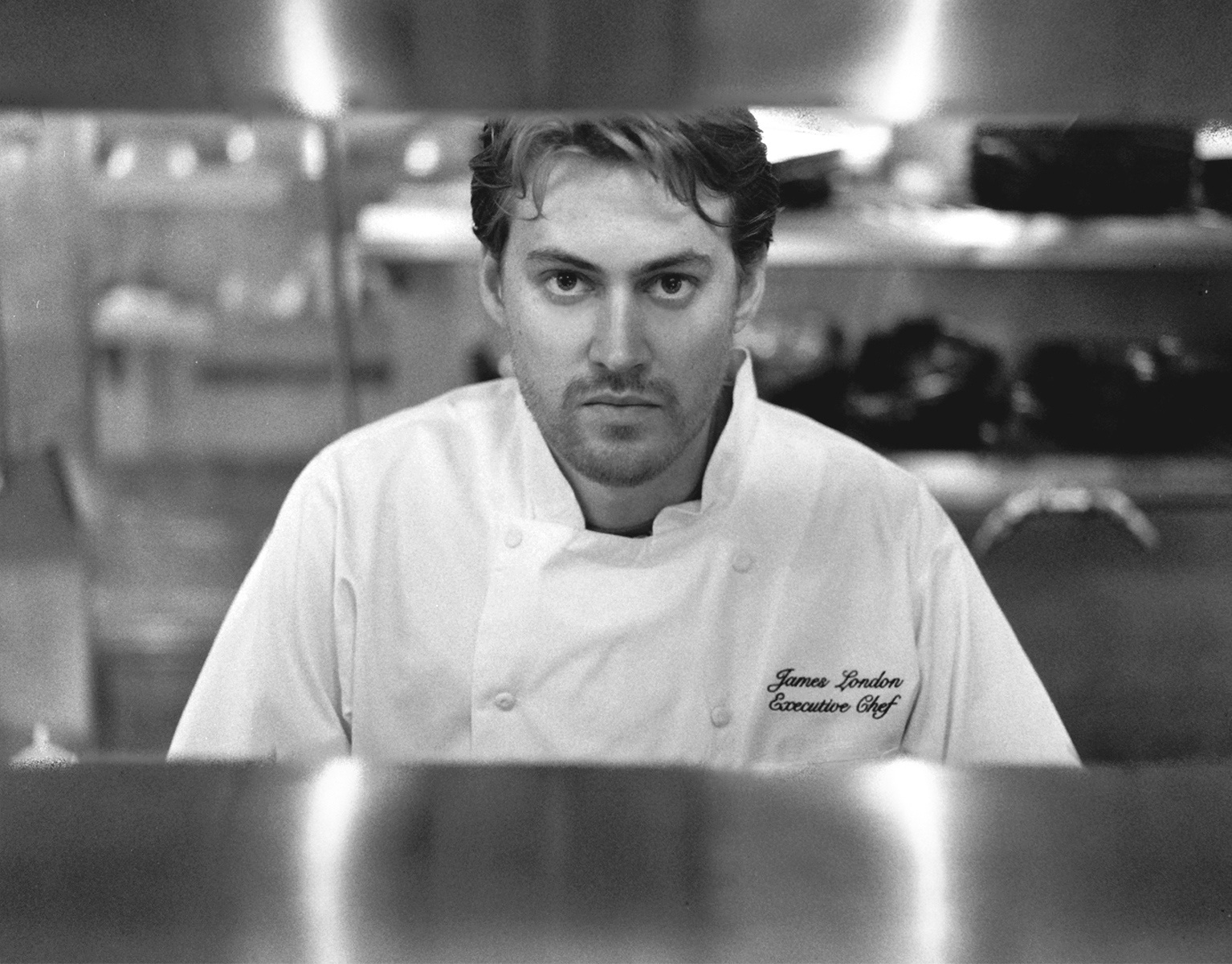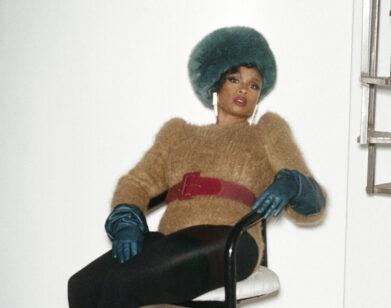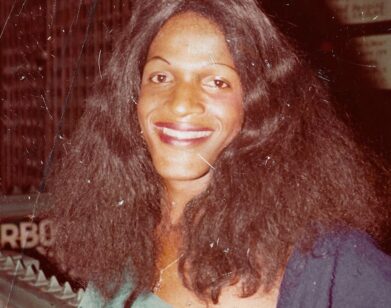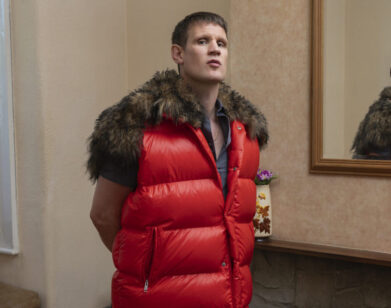The CO -OP Chef: James London

ABOVE: JAMES LONDON IN NEW YORK, DECEMBER 2012. PHOTO BY CHRISTOPHER GABELLO.
At the ripe age of 29, James London is already an in-demand chef in the New York dining scene—you just might not know it unless you’ve stepped foot in one of his restaurants. Unlike some of his peers, London has side-stepped reality TV gigs in favor of educating himself in some of the city’s most illustrious—if unstable—kitchens.
“I’m not a plate thrower,” says London, whose recent stint at SoHo sushi joint Niko ended after such antics by the restaurant’s staff spawned poor reviews. A self-described “egoless chef,” London was born and raised in Charleston, South Carolina, where he worked in Southern barbeque restaurants before moving to New York and enrolling in the French Culinary Institute. There, he cut his chops under the tutelage of Jacques Pépin and André Soltner—”the badass, old-school Frenchies,” as he calls them—before taking gigs at midtown Spanish restaurant La Fonda del Sol and Niko. A consultant appointment for the re-launch of The Crow’s Nest in Montauk soon followed, and before he knew it, London had morphed into a kind of culinary chameleon-capable of cooking Southern, French, Spanish, or Japanese at the drop of a hat.
These skills are serving London well in his most recent entrée, as Executive Chef at Hotel on Rivington’s trendy eatery, CO-OP. There, Interview dug into London’s menu of Japanese favorites with a few Southern twists, before sitting down with the chef to discuss his garage band beginnings, the differences between seaside and big-city eating, and the New York dining forecast for 2013.
JEFF OLOIZIA: I’m told that your hometown, Charleston, is a big foodie destination.
JAMES LONDON: Yeah, it’s huge. The food scene that takes place there—from food trucks to the farmers markets, the chefs are put up and exalted and it’s a really cool place to be in the industry. The community really supports restaurants and the restaurants really support each other.
OLOIZIA: Did you always know you wanted to be a chef?
LONDON: When I was growing up I was a drummer and a soccer player, so I wanted to be one of those two. And then once I got to college and decided not to go the college soccer route, I thought, “Well, now I’m going to be a drummer.” But I was still cooking the whole time. I started cooking when I was about 15. And so, one of my chefs pulled me aside when I was probably a freshman in college and was, like, “You’re either going to be a drummer or you’re going to be a chef, but either way, you’re going to make up your mind and you’re going to let me know tomorrow.”
So I would cook until 9:30, and then I would take my apron off and run down the street to my gig at a bar. Someone would set up my drums for me and I would just hop up on stage and start playing. But, you know, the chef was getting tired of it, and they were getting tired of setting up my drums. It was time to make a choice, so I came back the next day and said, “I want to be a cook.” And I never looked back.
OLOIZIA: So you were pretty seriously engrained in the kitchen, at that point?
LONDON: Yeah. I knew the dedication it required, and I thought, “If I’m going to do this, I’m not doing anything else. This is my life from here on out.”
OLOIZIA: How did the move from Charleston to New York City happen?
LONDON: Well, I graduated from College of Charleston with a business degree. Both my parents are educators at Clemson University and it was very important to them that I go to school. But it was about when I was a sophomore in college that I really started to take cooking seriously, and when I got done with school I stayed around Charleston for a few years working for some good restaurants. Eventually my parents were like, “Listen, if you’re going to do the chef thing, go do it somewhere else. Go to New York. Go to Paris. Get out there and really do it.”
OLOIZIA: Did your parents cook a lot when you were growing up?
LONDON: My mother was a phenomenal cook. That’s where I really got my love of cooking. It was eating her food growing up and seeing the love and care in it and just the way that the family table was a very hallowed place where everybody could unwind and leave everything off the table. It was huge to have that growing up. That’s something that’s important to me to this day.
OLOIZIA: What kind of food did you make when you were starting out?
LONDON: It was all very Southern. It was barbeque restaurants and, you know, old Southern favorites—the shrimp and the grits, the fried chicken, the chicken perlo. The South Carolina repertoire. It was later on that I got into the molecular gastronomy-type stuff.
OLOIZIA: How did you get into cooking Spanish food [at La Fonda del Sol]?
LONDON: When I got out of school, I actually wanted to pick up Japanese cooking. So I went out and researched the guys who were doing Japanese in a new light; those guys always seemed to be a little bit more advanced in their food than other people. Josh DeChellis was one of them, and at this point in time, he was cooking modern Spanish food. So I went and basically said to him, “I want to learn modern Spanish from you, but I also want you to go back in your books and teach me a little Japanese.” So I went to work with him, and when I was ready to make my move, [Chef DeChellis] said “All right, I’ve got a spot for you,” and he set me up with Niko.
OLOIZIA: What did you take away from your recent time in Montauk?
LONDON: That was a transition period, a head-clearing time. I had been doing the six, seven day grind at Niko for almost two years, so the opportunity [to have a] beach house in Montauk for the summer sounded nice. We’d go to the dock at 10 each morning and purchase our fish right off the dock.
OLOIZIA: I noticed the menu at CO-OP features a lot of items from Montauk.
LONDON: Absolutely. I have Montauk squid listed on there, Montauk fluke… from the same guys I was buying it from when I was out there.
OLOIZIA: Is it more difficult to get quality ingredients in New York City?
LONDON: You know, New York City is different. In Montauk, you’ll see a striped bass fisherman come up to your door and he’s got six striped bass in his hands. You’ll see a guy come up with a bag of clams, a guy who was out foraging chanterelles who comes up to your back door with 15 pounds of chanterelles to unload. You don’t really get that here. You can definitely find great produce and great seafood. It’s just less of the backdoor thing.
I go to the farmer’s market a lot and work with really great fish purveyors who will call me at five-thirty, six in the morning and say, “There’s great black fish in the market,” or “The snapper’s looking amazing today.” It’s annoying on one hand, but at the same time it’s so cool, and it ensures I get really, really great product.
OLOIZIA: What other factors informed your choices in designing the menu at CO-OP?
LONDON: Right now, it’s taking influences from the neighborhood, taking my influences from the South—we just put a mini version of a pulled pork sandwich on the menu—taking my passion for Japanese food, and just kind of balling it up into one thing and seeing what comes out.
OLOIZIA: Are you a chef who follows trends?
LONDON: I do follow the trends, but I don’t necessarily implement them in my kitchen. I feel like modern technique certainly has a place in the kitchen, but I don’t think it should be gimmicky. I had a chef tell me a long time ago—he was asking me how to do some type of caviar, or something like that, and I was like, “What’s an old guy like you doing learning how to make pomegranate caviar?” He said to me, “Well, chef, you adapt or you die.”
So I definitely follow trends trends, but here I do my own style, and my style is not trendy. Yes, I do pretty food, I do pretty plates, but I don’t ever do a trend because it’s cool or because some guy down the street is doing it. It’s either going to make the food better, or I’m not going to do it.
OLOIZIA: What do you think people are looking for in a dining experience in 2013?
LONDON: I think you’re seeing a shift towards a casual setting for fine dining and quality food. We don’t use tablecloths here. The music is loud and fun. It’s moving away from the fine dining and the white tablecloth and towards a more casual atmosphere. You don’t have to dress up. You can just come in, you can sit at the bar, but we’ll blow your socks off with the food.
To see more of our 13 Faces of 2013, click here.






